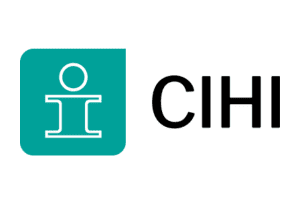Improvement through partnership

Perhaps you have experienced disappointment over an extended timeframe as a patient or family member.
My personal experience as a long-term caregiver for loved ones led me to feel like an outsider — and at times an adversary — within the system, despite a career as a healthcare provider and educator. But I am an optimistic person who refuses to give up (or give in).
I retired five years ago and immediately left my office at Queen’s University for the frontlines at Kingston Health Sciences Centre (formerly Kingston General and Hotel Dieu Hospitals), a walk that literally meant crossing the street.
There I met with the lead for patient and family centred care and applied to become a patient experience advisor. Following an orientation, confidentiality pledge, and discussion about my interests and experiences, I received a photo ID and access to several opportunities to offer a patient / caregiver voice.
My volunteer commitments began with familiar areas in which I felt compelled to contribute my insights and devote my energy toward improvement. In 2019, I was successful in receiving scholarships to attend the annual e-Health conference in Toronto and the Institute for Patient & Family-Centered Care conference in Detroit. I found a whole new world of opportunities to network, learn, contribute, and dream. These events also gave me confidence to venture into novel areas of volunteering.
I am now active in numerous initiatives locally and nationally, including:
- The planning, educating, and implementing of virtual care services
- Assisting in hospital accreditation preparation
- Contributing to quality improvement priorities
- Reviewing patient safety initiatives, and
- Providing the patient perspective for several research projects
In each of my commitments, I have found benefits for myself personally and, I hope, for the broader patient / caregiver population.
In one research initiative, I have the pleasure of working with a diverse group of people who bring clinical, administrative, technical, and patient-oriented research expertise together to create resources with and for patients and caregivers.
Our project arose from the story of one older adult patient who requested to defer a crucial medical follow-up appointment due to challenges in getting her driveway plowed. She enlisted a volunteer driver, anticipating the fatigue of a long drive to the outpatient clinic in wintry weather.
Her neurologist was taken aback by her story and began to devise a way to alleviate these barriers for her and countless other patients, leading to the creation of a virtual follow-up clinic long before COVID-19 became a part of our everyday lexicon.
Raising my hand to assist this physician following a presentation to the hospital’s patient and family advisory council has become one of my most rewarding decisions. After facilitating a number of focus groups leading to the creation of a patient advisory group, our team created a series of videos and postcards, initially for older adults, to navigate virtual healthcare interactions more successfully (and in six languages).
We have published this research and plan to expand our resources for key patient populations.
This is one example of how I now experience a sense of belonging and partnership within our healthcare system. I am developing a degree of agency to replace frustration, and my optimism and energy are growing as I embark on new endeavours.
I urge patients / caregivers who have been discouraged in healthcare interactions to consider stepping up to contribute to positive change. And I advise those who work within the system to invite, seek out, and welcome patient advisors as collaborators: we bring insights, lived experience, and a passion for improvement to the table.
Together, our partnerships will improve healthcare and health caring.




